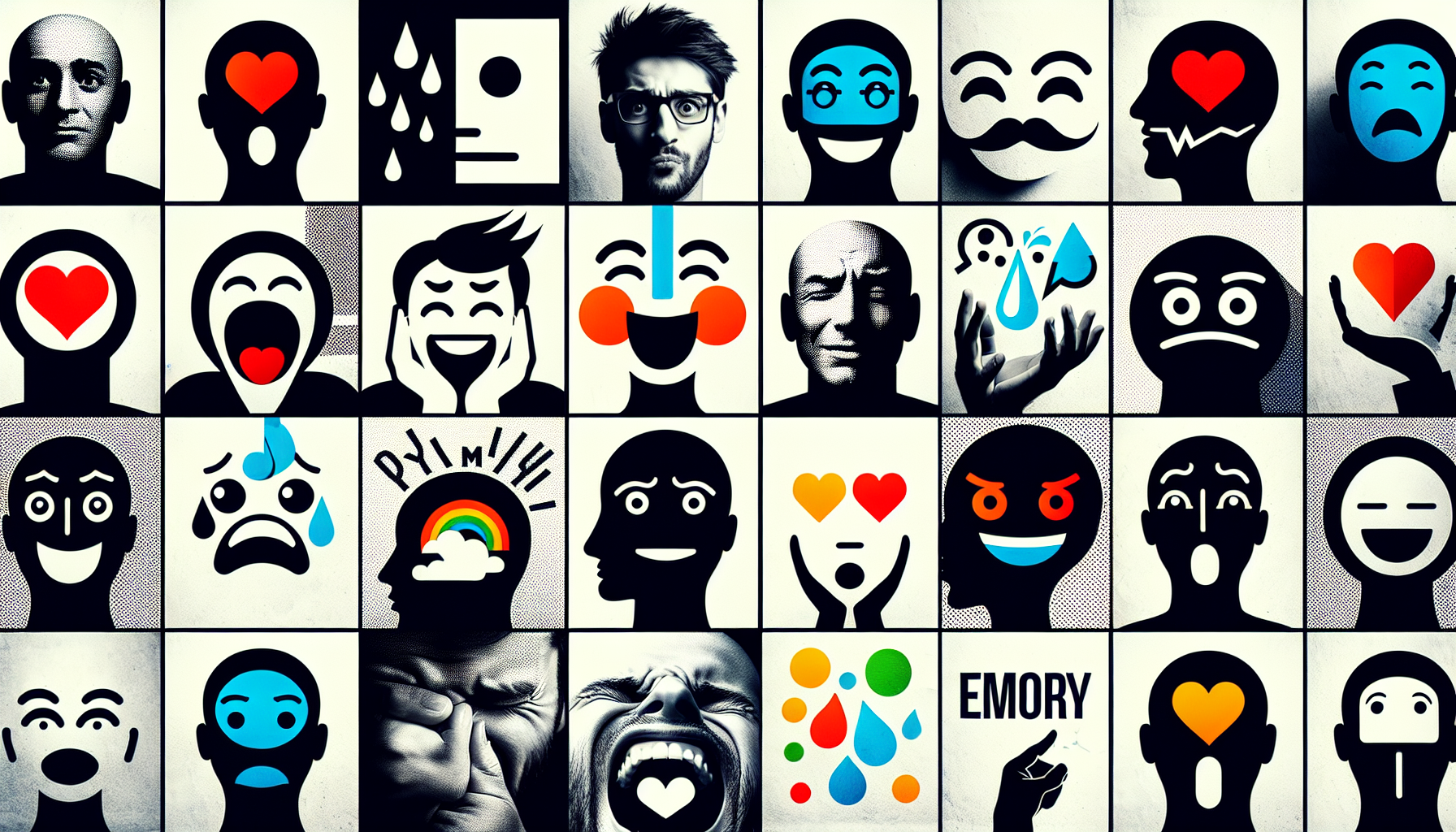The Future of Computer Vision: Innovations from Boston's Startups

Computer vision, a field that enables machines to interpret and understand visual information from the world, has seen rapid advancements thanks to the proliferation of artificial intelligence (AI) and machine learning (ML). Boston, with its blend of academic prowess and entrepreneurial spirit, is at the forefront of these advancements. Startups in the area are leveraging cutting-edge research to develop solutions that address real-world problems, from enhancing safety to improving efficiency across industries. This new era of visual intelligence is not just about technology; it’s about creating more intuitive and meaningful interactions between humans and machines.
Spotlight on Startups
Affectiva, co-founded by Rana el Kaliouby and Yasemin Kalyoncu, is a pioneer in emotion recognition technology that utilizes computer vision to analyze facial expressions. Their software can interpret emotions in real-time, providing valuable insights for various applications, such as market research, automotive safety, and customer experience enhancement. For instance, in the automotive sector, Affectiva's technology can enhance driver safety by monitoring emotional states and alerting drivers if signs of drowsiness or distraction are detected. By integrating AI with computer vision, Affectiva is revolutionizing the way businesses understand consumer behavior, making interactions more empathetic and human-centric. Slyce, founded by Mark McNally, focuses on visual search and recognition technologies. Their platform enables consumers to take pictures of products and find where to purchase them online. This seamless integration of computer vision into the shopping experience not only simplifies the purchasing process but also enhances customer engagement. An example of Slyce's impact can be seen in retail settings, where it allows customers to scan items for quick access to product information, reviews, and purchasing options. The potential applications for Slyce’s technology extend beyond retail, touching on areas such as advertising and inventory management, thereby creating a more efficient ecosystem for both consumers and businesses. Humatics, co-founded by David Mindell, is transforming the landscape of robotics and autonomous vehicles with its precision localization technology. By employing computer vision alongside advanced sensor technology, Humatics allows machines to navigate complex environments with remarkable accuracy. This innovation is crucial for applications in logistics, manufacturing, and smart cities, where precise movement is essential for efficiency and safety. For instance, in warehouse management, Humatics’ solutions can facilitate the autonomous navigation of robots, optimizing space utilization and reducing operational costs.
Interviews with Visionary Founders
Yasemin Kalyoncu, Co-Founder of Affectiva, shared her vision for the future: “Our goal is to create a world where technology understands human emotions. By harnessing the power of computer vision, we can bridge the gap between humans and machines, leading to more empathetic interactions.” Her commitment to fostering emotional intelligence in technology sets Affectiva apart in a crowded marketplace. Mark McNally, CEO of Slyce, emphasized the importance of user experience: “Shopping should be intuitive and personal. Our technology allows consumers to engage with products in a way that feels natural to them, and computer vision is at the core of this innovation.” His focus on creating a seamless shopping experience highlights the transformative potential of computer vision in everyday consumer interactions.
The Road Ahead
The future of computer vision in Boston looks promising, with startups continuing to push the envelope of what's possible. As these companies grow and evolve, they are likely to face challenges such as competition, funding, and the need for continual technological advancement. However, the collaborative environment fostered by Boston’s tech community, along with its strong ties to academia, ensures that innovation will remain at the forefront. Initiatives such as startup incubators, partnerships with universities, and access to venture capital are all critical factors that will support the ongoing evolution of the computer vision landscape.
Boston is not just a center for education and research; it is a breeding ground for transformative startups that are redefining the landscape of computer vision. As companies like Affectiva, Slyce, and Humatics continue to innovate, they are setting the stage for a future where visual technology seamlessly integrates into our daily lives. The insights gleaned from these pioneers offer a glimpse into a world where machines not only see but understand, creating new opportunities and enhancing human experiences across various sectors. The journey of computer vision in Boston is just beginning, and its potential is limited only by our imagination. The city’s commitment to fostering innovation and collaboration will undoubtedly propel this field into new frontiers, shaping the future of technology as we know it.
Computer Vision Engineer
Affectiva, Slyce, Google, Amazon
Responsibilities
Develop and implement algorithms for real-time image processing and object detection.
Collaborate with cross-functional teams to integrate computer vision solutions into existing products.
Conduct experiments and performance evaluations to optimize vision models.
Required Skills
Proficiency in programming languages such as Python and C++, along with frameworks like TensorFlow or OpenCV.
Strong understanding of machine learning concepts and image processing techniques.
Experience with deep learning architectures, such as CNNs (Convolutional Neural Networks).
Machine Learning Research Scientist
Affectiva, Microsoft Research
Responsibilities
Conduct research to advance the field of machine learning with a focus on visual data interpretation.
Develop new models and algorithms for improving emotion recognition and visual search capabilities.
Publish findings in academic journals and present at conferences to share insights with the research community.
Required Skills
Advanced degree (PhD preferred) in Computer Science, Electrical Engineering, or related fields.
Expertise in statistical modeling, data mining, and experience with large datasets.
Familiarity with computer vision libraries and tools, as well as programming in R or Python.
Robotics Software Developer
Humatics, Boston Dynamics
Responsibilities
Design and implement software for robotic systems focusing on navigation and localization using computer vision.
Work on integrating sensor data (lidar, cameras) to improve robot perception in complex environments.
Collaborate with hardware engineers to ensure seamless integration of software and hardware functionalities.
Required Skills
Strong programming skills in C++ and ROS (Robot Operating System).
Experience with computer vision techniques for obstacle detection and environment mapping.
Knowledge of control theory and robotics algorithms.
UX Researcher for Visual Technologies
Slyce
Responsibilities
Conduct user research to understand the needs and behaviors of consumers interacting with visual search technologies.
Develop user personas and journey maps to inform product design and enhancements.
Collaborate with product teams to create intuitive user interfaces that leverage computer vision capabilities.
Required Skills
Strong background in user experience design, usability testing, and human-computer interaction.
Proficiency in research methodologies and tools such as surveys, interviews, and analytics software.
Experience with visual communication and design principles.
Data Scientist specializing in Visual Data
Affectiva, Slyce
Responsibilities
Analyze and interpret large datasets generated from computer vision applications to derive actionable insights.
Develop predictive models using machine learning techniques to enhance visual recognition systems.
Collaborate with engineers and product teams to refine data collection methods and improve algorithm performance.
Required Skills
Proficiency in statistical analysis tools and programming languages such as Python, SQL, and R.
Experience with data visualization tools like Tableau or Power BI.
Strong understanding of computer vision metrics and evaluation techniques.


